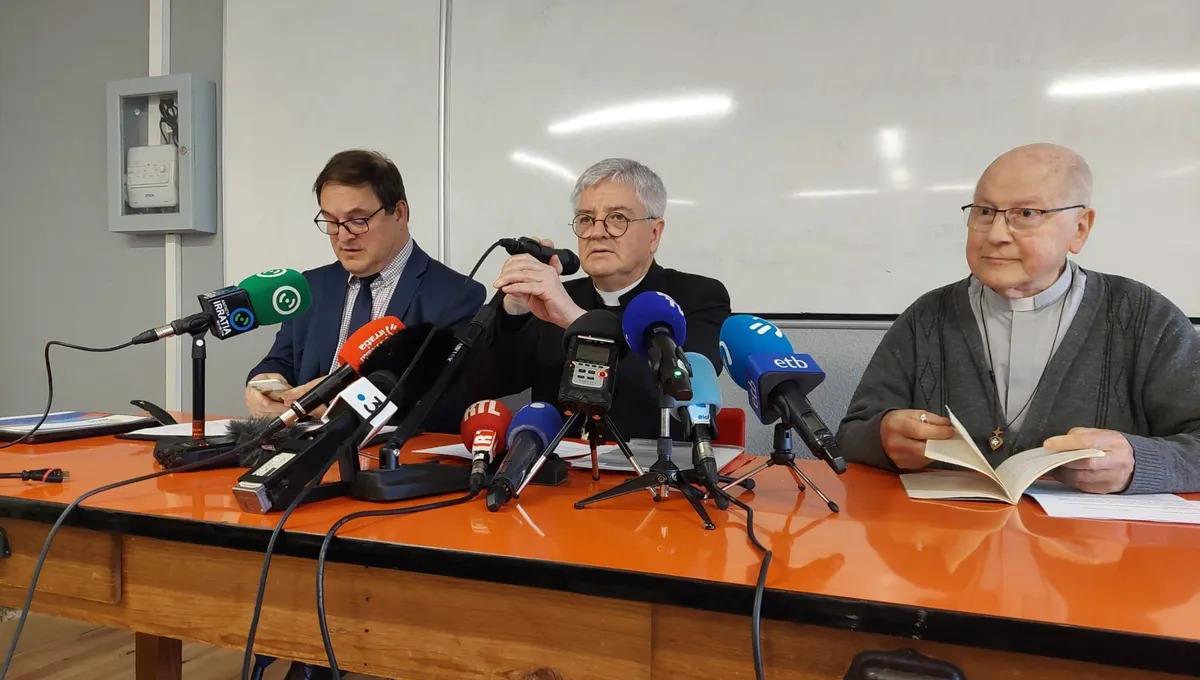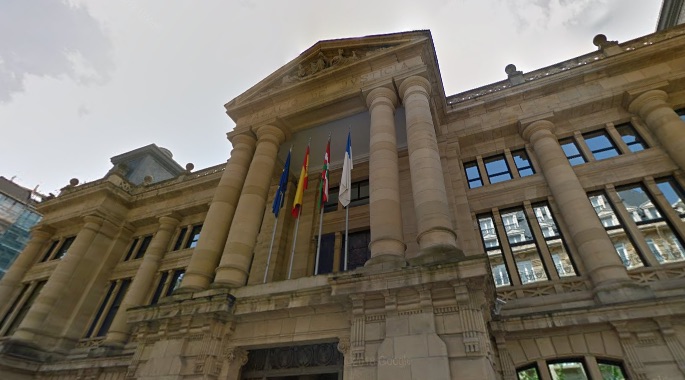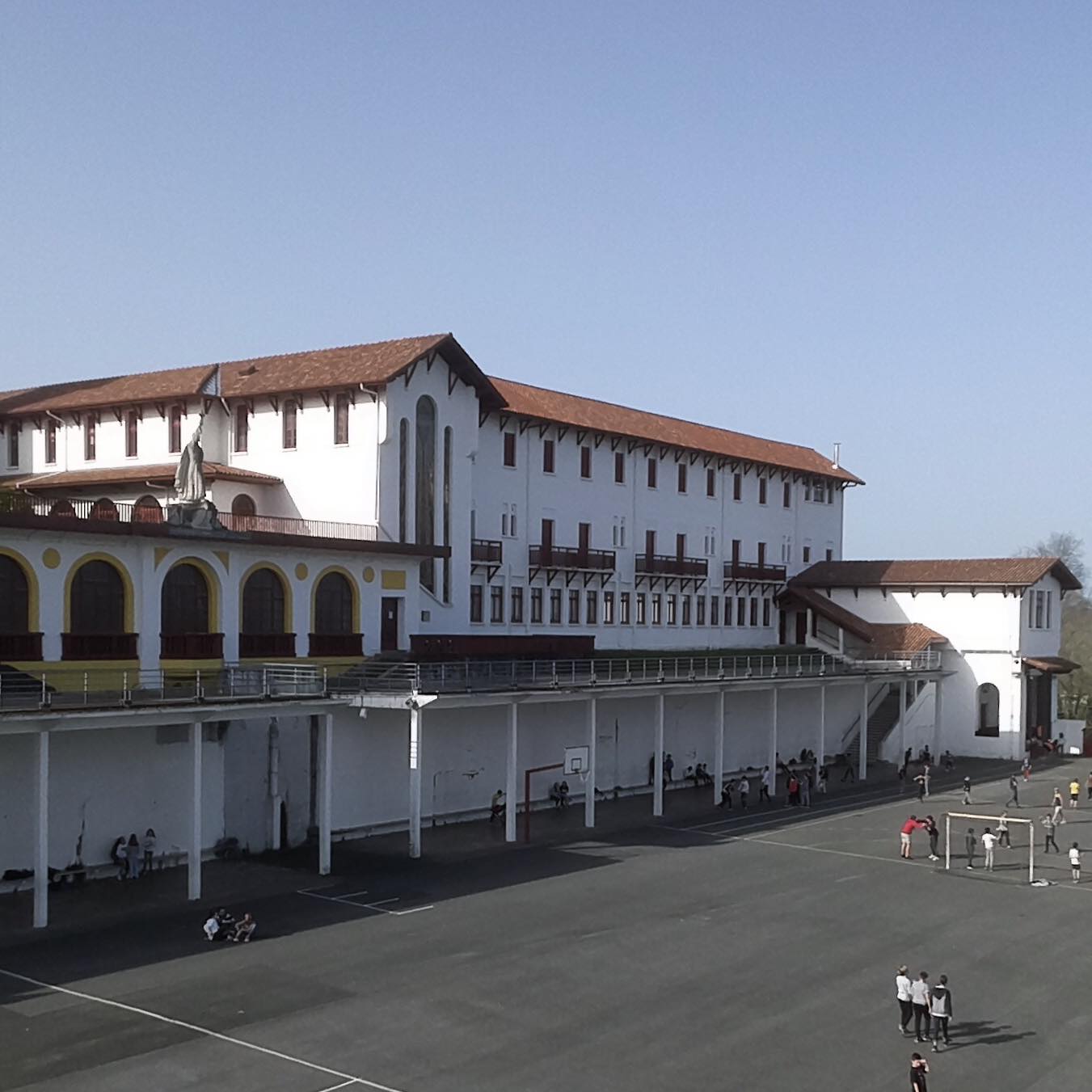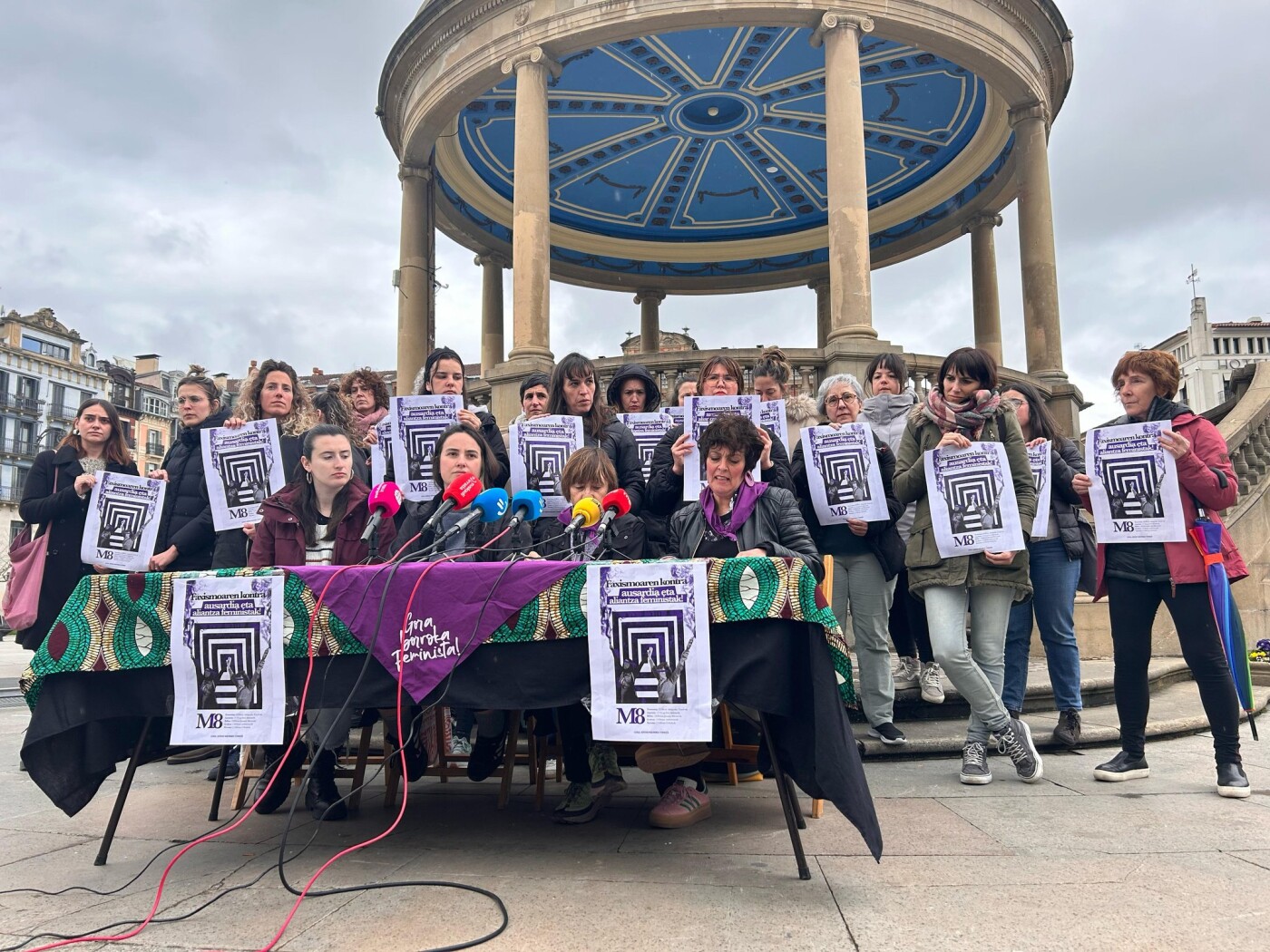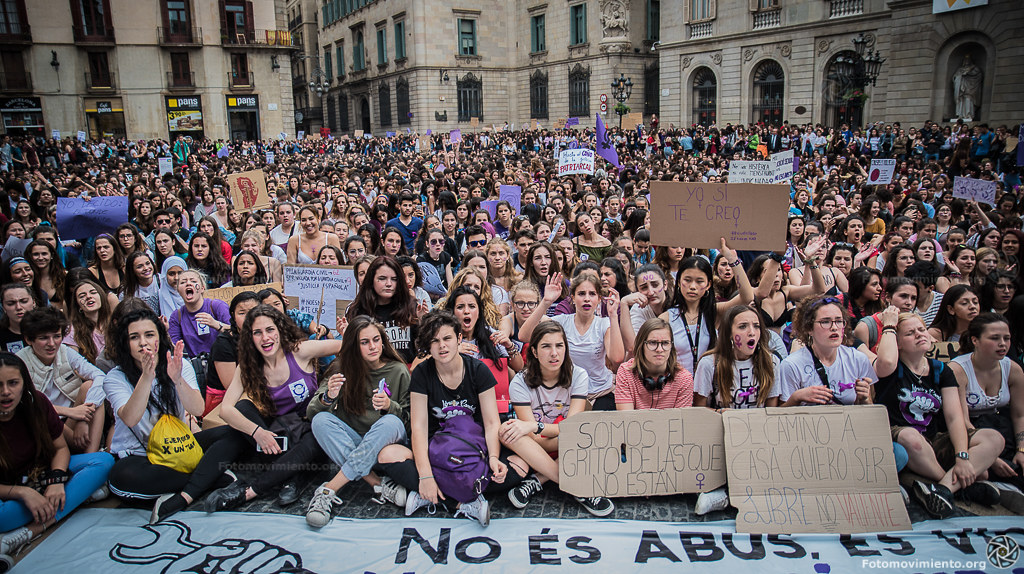"We have to harness all the talent of women in the struggle for climate change that we're losing."
- Uxua López is one of the 80 women scientists who during these days are on an expedition in Antarctica, in which they participate. They belong to the network of 1,000 expert women who started weaving two years ago. The first step is to give visibility to women's work. The next one is to open the way to the spaces where decisions are made on climate change, before it's too late.
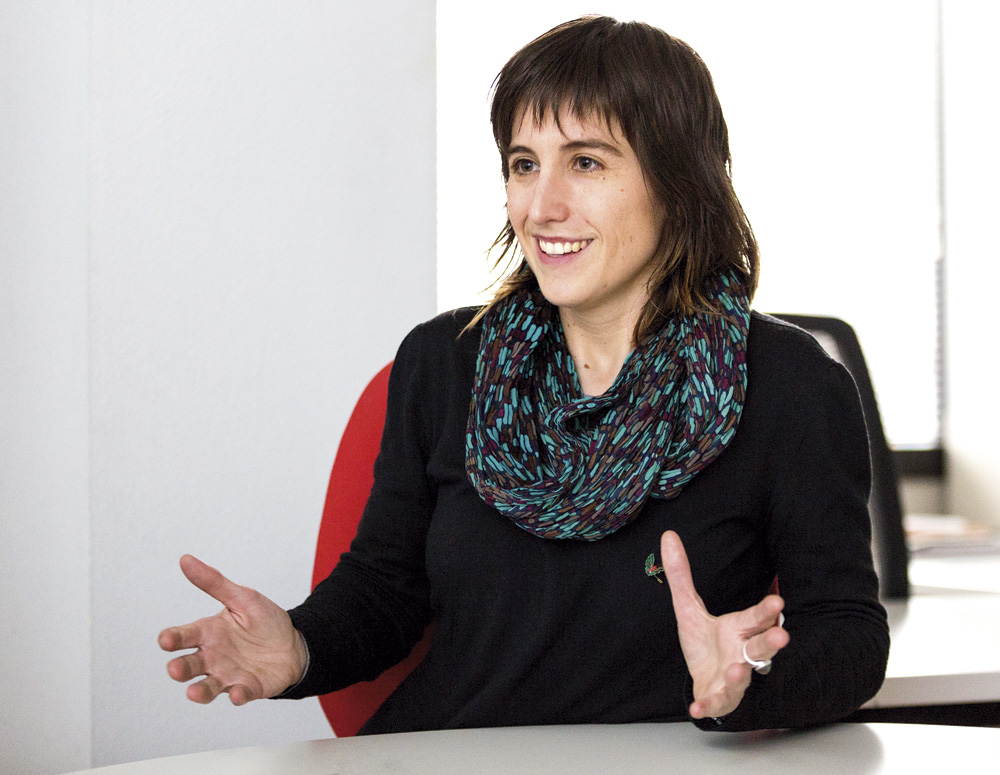
Telekomunikaziotako ingeniaria da. Duela hamabi urtez geroztik Acciona enpresan ari da lanean eta otsailaren 13tik Antartikan dabil Homeward Bound proiektuan parte hartzen. Zientzia eta teknologia alorretako mundu zabaleko 80 emakume bildu dira ekimen horretan, urtebeteko formakuntza saioa egin ondoren. Helburua da 2025erako 1.000 emakumeren sarea eratzea klima aldaketaren aurkako borrokan erabakimen postuetan esku har dezaten.
What is your job at the company Acciona?
I've been working at the control center for five years. From there, some 400 renewable energy stations are controlled, with a 14 Gigabyte energy source. In this section we work almost 80 people, and I'm on the team that's in charge of system safety. I did the cybersecurity graduate two years ago, and my specialty is to manage control systems for the industry. Problems in this area may affect the activity of a factory, an electricity plant or the operation of traffic lights. The consequences can be very serious for people. So far, fortunately, we have had no surprises.
What is that trip to Antarctica?
This is an expedition that puts an end to a year of training, within the Homeward Bound project. This initiative was born two years ago with the aim of reaching the age of ten. Each year, 80 women are chosen by the STEM (science, technology, engineering and mathematics). It is a network whose objective is that in ten years’ time 1,000 women will be well prepared in the world to hold positions of responsibility in areas where decisions on climate change are made.
This year’s edition is the second. The idea emerged in Australia. A scientist, Jessica Melbourne Thomas, and a trainer, Fabian Dattner, came together to value women's work. Data collected in several relevant studies showed that working groups with gender parity achieve results that exceed by 50% the majority groups of men. The two women realised that we are losing the fight for climate change and that it would be beneficial to implement the parity strategy.
Why do egalitarian groups work better?
These studies show that women can provide different solutions to problems through our creativity and our experience. It is very serious to waste all the talent of women. I have often wondered what has happened to all that talent that has not been exploited for centuries.
It's clear that women have other views, because we have other vital experiences. In dealing with problems, for example, we can find solutions that have not so far been common. In general, we are better at working as a team. Sometimes the best solution does not come because you have very high technical knowledge, but because in addition to that you have to take into account many other things: the value of common work, the emotions that provoke the decisions made, the consequences that it has for other people, for example. We must harness all the talents and skills of women in the struggle for climate change that we are losing. What is at stake is not the survival of women, men or penguins, but of everyone, of the whole planet.
“In Basque Country the summers are longer, we have large droughts and invasive species have multiplied”
How did you find out about this project?
Most of the women participating this year already know someone from the previous year, but I found out about it through a radio show. Raw meat is a very interesting programme, as it gives exceptional treatment to both gender and science issues. Climate change and gender have been my main fields of struggle ever and in this initiative both coincide. I thought I didn't have the profile they wanted, because most of them were scientific researchers, but nevertheless, I sent the proposal at the last moment and they accepted me.

In the presentation of the project, the promoters raised a very nice idea. In a video, they would ask girls and women what they would do if their mother were sick, and that would join Mother Earth and the ravages we're doing. It was very exciting.
In February last year, the training period began. Throughout the year we have worked in groups, in collaboration with friends and friends from different parts of the world. We have read a lot of documentation and worked on three main themes: leadership, strategy and visibility of women. It has been a very intensive job. Hard, but very nice.
What do you have to do during the expedition?
It's a four-week trip. Depart on 13 February and return on 13 March. We will take the boat in Argentina and for two days we will cross the Drake Strait. We've been told it's like traveling a thousand kilometers in the washing machine. Terrible. We've been told that we're going to have to take a medication that's much tougher than biodramine in order to be able to resist. Then we will visit the scientific stations. It's not a sports expedition, it's scientific visits. We will know the stations of Russia, the United States, Great Britain, China and Argentina. Antarctica is a kind of giant laboratory, ideal for analyzing the consequences of global warming. This is the largest water supply on the planet and there are no other factors that can cause pollution or distortions.
How has the company Acciona helped you in this project?
To participate in the initiative, $16,000 has to be paid, half of the actual cost of the initiative. Acciona Energía assumed this expense because the philosophy of the project is consistent with the objectives of the company. In addition, I had to pay the insurance, travel and material in my pocket, but in December the brand Acciona decided to create Acciona Team with the participants of the expedition. It has helped us to get the equipment and put the one that was missing to pay the other participants. Furthermore, the companies in Ternua and Lorpen have given us a great deal of material and I must thank them, of course.
What does the attitude of US President Trump, who denies climate change, look like?
There are fewer and fewer skeptics. Some colleagues say that we have to convince people, but I think that is no longer necessary. Those who want to believe believe and those who do not want to believe believe. I do not do pedagogy anymore, I do propaganda.
The consequences of change are obvious. In CO2 emissions over the past 50 years, there's a huge boom that has never existed before. Desertification, rainfall, floods, increasingly terrible droughts, the expansion of a lot of invasive species and the total destruction of many ecosystems… The consequences are irreversible and that is why now is the time to change our ways of acting so that no more can escape from our hands. Many things have been lost and we will never recover them.
For example?
Desert areas, for example. In China, over the past 50 years, the desert has grown by 25,000 square kilometers. 80% of the surface of the Iberian Peninsula is at risk of being dismantled, according to a report from the Spanish Ministry of the Environment of 2016. Recovering the old rains is very difficult, if not impossible.
What about Antarctica?
The main consequence of global warming is the melting of ice walls. Glaciers are also disappearing. If ice were to disappear, it could change the topography of the world, as some fragments of land would be submerged and others would become very warm. The rise in sea level is worrying, the currents of air and sea are different, the marine ecosystems change and we all suffer the consequences.

And here, in the Basque Country?
Here summers are longer, we have strong droughts and invasive species have multiplied. One of the invaders is Pampa or Pampa (Cortaderia selloana). This high herb, originally from South America, lives in Panpa and Patagonia, and is increasingly visible on the coast of Euskal Herria. It affects many native plants.
Why are there so few women in science and technology?
Women have always been invisible in these fields, and today we remain the same. For example, the experts appearing in the media are almost all men. There are also very few textbooks. Only 3 percent of the Nobel Prizes have been for women in science. For all these reasons, there is a tremendous lack of references that directly affect girls when choosing studies. They often make girls believe that they are worse in science and math. That is not the case. There's the results and the notes showing the opposite.
On the other hand, the career of science and technology is very tough. Publishing or dying “Publish or perish” is said to indicate that you have to be constantly reporting on your research and is not compatible with motherhood. Many women abandon professional competence and many others stop being mothers until they have a good place at work. There are a lot of women in college, especially in degrees like biology, but then they don't get to positions of responsibility.
There are big cracks, and the biggest one is the one that produces care. For women to go to Antarctica, men have to take their children to the doctor, play cards with their grandfather, go shopping and wash clothes. As long as care and housework are not shared, it is impossible for women to have the same opportunities in our professional development.
In the business world, for example, where I am, a man having a child is a good thing for the company, because that means that his personal situation will be more stable, that he doesn't go where he goes, that he will be focused on the company. On the contrary, when a woman has a child, the problem is that now they change their preferences, you can not always be free, you will be more confused, you have to leave work many times… All those gaps, and those that are on wages, until they do not disappear we have a difficult future.
Solution?
Change to all levels. Men must be aware that they must lose their privileges and businesses must take some steps to achieve real compatibility. Adequate laws at the government level are needed to promote the professional development of women. A fellow project from the United States told me that at some congresses there are services to take care of children, so that no one stays at home for that reason. And in some cases positive discrimination will have to be made in favour of women.
Would the egalitarian world be different?
I think so. It would be much quieter. Much less there will be problems of war, hatred and border. There would certainly be more cooperation and more communication.
“Martxoaren 8an Antartikan ez dakit zer eginen dugun, baina zerbait bai, seguru. Dena den, nik uste dut greba azaroaren 3an hasi beharko genukeela eta urtarrilaren 1era arte iraun. Nafarroan emakumeok lan berdinarengatik %18 gutxiago kobratzen dugu, beraz, kontuak aterata, azaroaren 3ra arte baino ez genuke egin beharko lan”.
“Berotze globalaren ondorioak gehien pairatzen dituztenak emakume pobreak dira, haiek bizi baitira lurrari lotuak eta oso baliabide gutxirekin. Adibidez, uholdeetan gehien hiltzen direnak emakumeak dira askok eta askok igerian ez dakitelako”.
“Berdintasuna lortzeko emakumeen aldeko bazterketa positiboa egin behar da. Agian, hasieran, pribilegioak galtzeak gizon batzuei beldurra emanen die, baina onuragarria izanen da guztientzat. Gainera, pribilegio horiek gizon batzuentzat karga modukoak ere badira, asko eskatzen baitzaie soilik gizona izateagatik”.
Prentsaurrekoa eskaini dute ostegun honetan Marc Aillet Baionako apezpikuak, elizbarrutiko hezkuntza katolikoko zuzendari Vincent Destaisek eta Betharramgo biktimen entzuteko egiturako partaideetarikoa den Laurent Bacho apaizak. Hitza hartzera zihoazela, momentua moztu die... [+]
Antifaxismoari buruz idatzi nahiko nuke, hori baita aurten mugimendu feministaren gaia. Alabaina, eskratxea egin diote Martxoaren 8ko bezperan euskal kazetari antifaxista eta profeminista bati.
Gizonak bere lehenengo liburua aurkeztu du Madrilen bi kazetari ospetsuk... [+]
11 adin txikikori sexu erasoak egiteagatik 85 urteko kartzela zigorra galdegin du Gipuzkoako fiskaltzak. Astelehenean hasi da epaiketa eta gutxienez martxoaren 21era arte luzatuko da.
MAITE: (biharko eguna antolatzen bere buruaren baitan) Jaiki, gosaldu, bazkaria prestatu, arropa garbitu, etxea garbitu, gizon hori jaiki, seme-alabak jaiki, hiru horien gosaria prestatu, haiek agurtu, erosketak egin, lanera joan, seme-alabak eskolatik jaso, merienda eman,... [+]
Matxismoa normalizatzen ari da, eskuin muturreko alderdien nahiz sare sozialetako pertsonaien eskutik, ideia matxistak zabaltzen eta egonkortzen ari baitira gizarte osoan. Egoera larria da, eta are larriagoa izan daiteke, ideia zein jarrera matxistei eta erreakzionarioei ateak... [+]
Elizak 23 kasu ditu onarturik Nafarroa Garaian. Haiek "ekonomikoki, psikologikoki eta espiritualki laguntzeko" konpromisoa adierazi du Iruñeko artzapezpikuak.
15 urteko emakume bati egin dio eraso Izarra klubean jarduten zuen pilota entrenatzaile batek.
Lestelle-Betharramgo (Biarno) ikastetxe katolikoko indarkeria eta bortxaketa kasuen salaketek beste ikastetxe katoliko batzuen gainean jarri du fokua. Ipar Euskal Herriari dagokionez, Uztaritzeko San Frantses Xabier kolegioan pairaturiko indarkeria kasuak azaleratu dira... [+]
Uribe Kosta BHI institutuko hainbat ikaslek salatu duenez, mezu "iraingarriak, matxistak eta homofoboak" jaso dituzte Batxilergoko beste ikaskide batzuengandik. Horrez gain, gaineratu dute mezuak irakasle bati ere bidali dizkiotela eta beste ikasle batzuen... [+]
Bi neska komisarian, urduri, hiru urtetik gora luzatu den jazarpen egoera salatzen. Izendatzen. Tipo berbera agertzen zaielako nonahi. Presentzia arraro berbera neskek parte hartzen duten ekitaldi kulturaletako atarietan, bietako baten amaren etxepean, bestea korrika egitera... [+]
Martxoak 8a heltzear da beste urtebetez, eta nahiz eta zenbaitek erabiltzen duten urtean behin beren irudia morez margotzeko soilik, feministek kaleak aldarriz betetzeko baliatzen dute egun seinalatu hau. 2020an, duela bost urte, milaka emakumek elkarrekin oihukatu zuten euren... [+]
Neska adingabeari sexu abusuak era jarraituan egin zizkiola frogatutzat jo du Bizkaiko Lurralde Auzitegiak.
1989tik 2014ra, Frantzia mendebaldeko hainbat ospitaletan egindako erasoengatik epaituko dute. 74 urte ditu Joel Le Scouarnec zirujau ohiak, eta espetxean dago beste lau sexu eraso kasurengatik.
Lau mila karaktere ditut kontatu behar dudana kontatzeko. Esan behar ditut gauzak argi, zehatz, soil, eta ahalko banu polit, elegante, egoki. Baga, biga, higa. Milimetrikoki neurtu beharra dut, erregelaz markatu agitazioa non amaitzen den eta propaganda non hasi. Literarioki,... [+]











